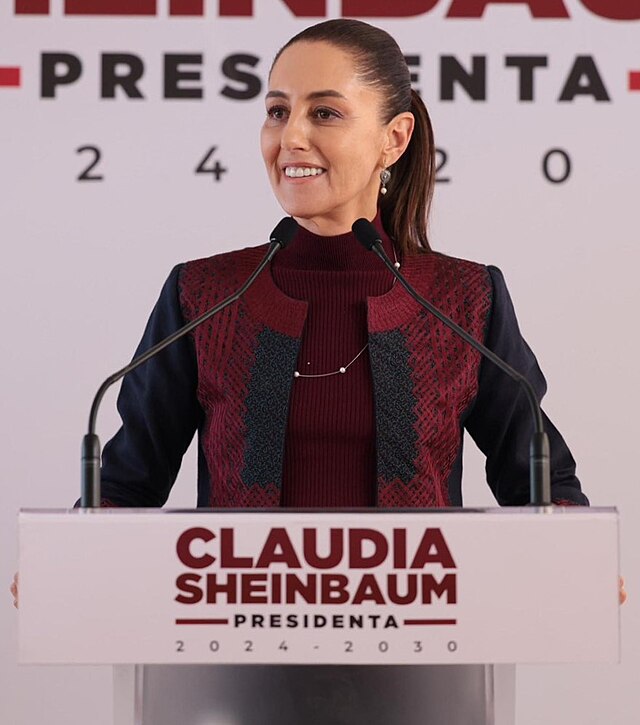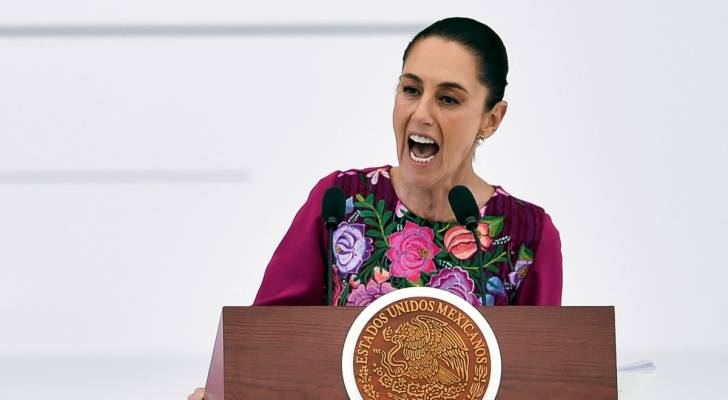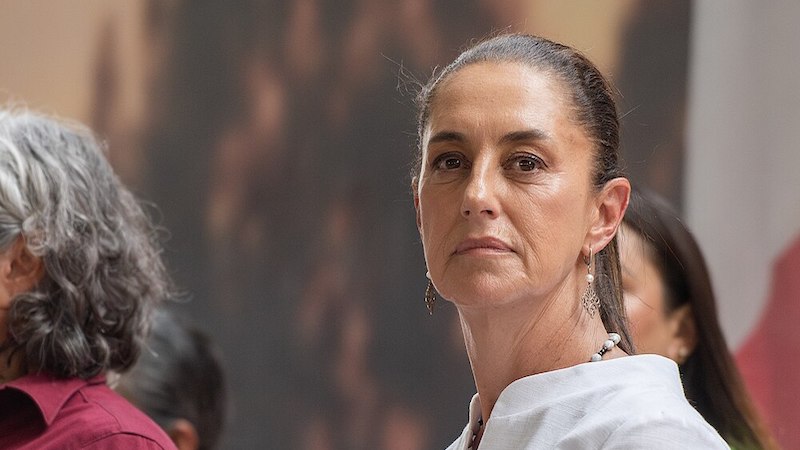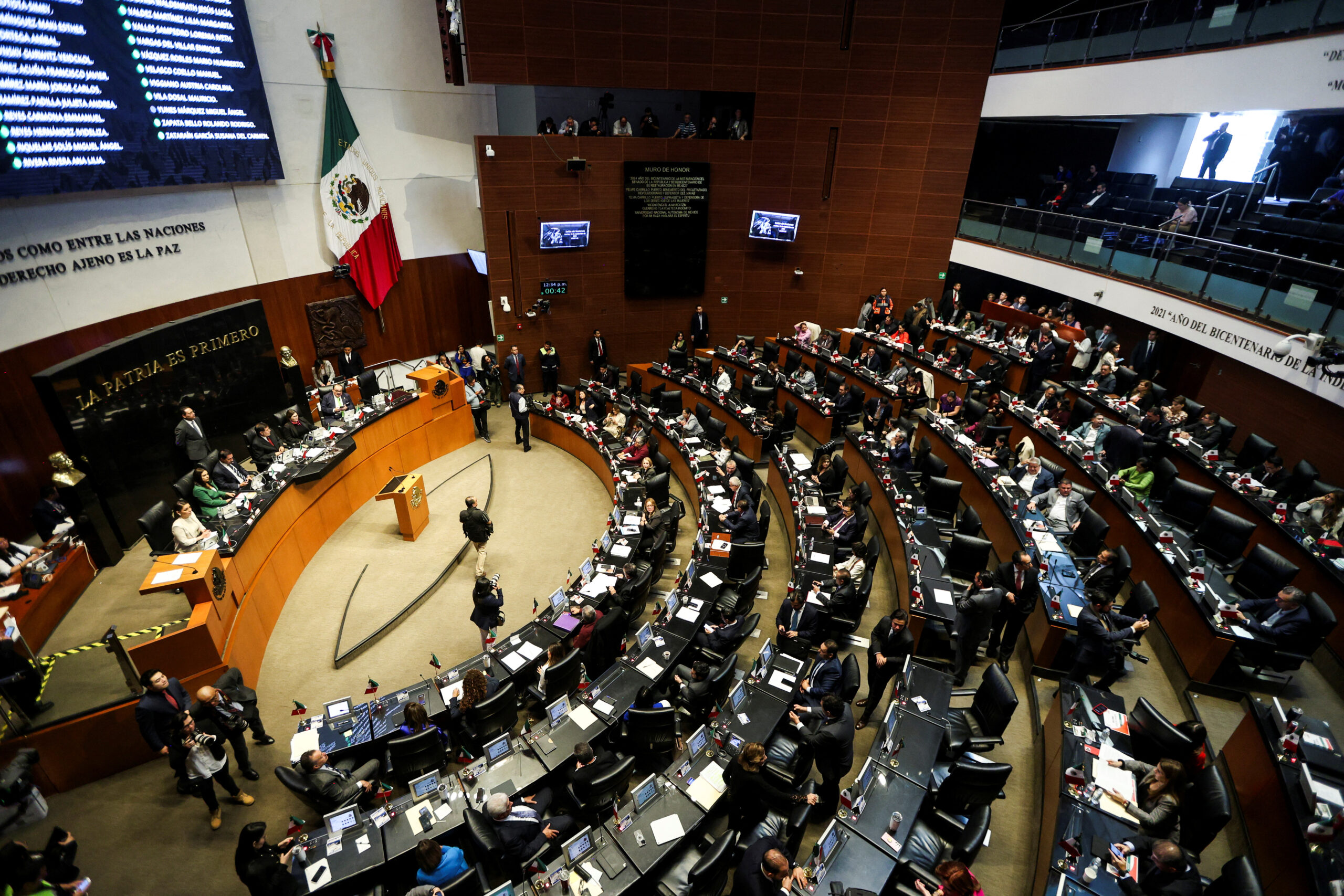









Claudia Sheinbaum made history as Mexico's first female president, taking office in October 2024 after succeeding Andrés Manuel López Obrador (AMLO), who served from 2018 to 2024. AMLO, who won the presidency in 2018 by a significant margin, established the left populist party Morena, which has since implemented progressive policies aimed at reducing poverty and doubling the minimum wage, echoing proposals similar to those of Bernie Sanders in the U.S. [abf27253].
In her inaugural speech on January 13, 2025, Sheinbaum emphasized the importance of Mexican humanism, which prioritizes the needs of the poor and aligns with Latin American liberation theology. This philosophy critiques oppressive systems and advocates for social justice, reflecting Sheinbaum's commitment to continuing the 'Cuarta Transformación' initiated by AMLO [b957a76e].
As Sheinbaum steps into her role, she faces immediate challenges, particularly concerning U.S. relations and the potential for mass deportations of 4.8 million undocumented Mexicans in the U.S. She has warned of a 'new reality' for Mexicans in the U.S. starting January 20, 2025, as her government prepares for possible actions in response to U.S. immigration policies under former President Donald Trump, who has threatened to impose a 25% tariff on Mexican exports if deportations occur [397bdd1c][0eadcb99].
In her first 100 days in office, Sheinbaum expressed confidence in dialogue with Trump while asserting that Mexico will never be subordinate to the U.S. She emphasized the importance of Mexicans in the U.S. to the Mexican economy, reinforcing her administration's stance on maintaining independence in negotiations [831ad147].
On January 12, 2025, Sheinbaum presented a comprehensive roadmap aimed at elevating Mexico from the 12th largest economy to a Top 10 economy by 2030. This ambitious plan includes increasing investments to 28% of GDP, creating 1.5 million manufacturing jobs, and enhancing local sourcing to reduce reliance on Chinese imports. Sheinbaum's agenda marks a significant shift from AMLO's approach, focusing on collaboration with the private sector to drive economic growth [042e0b2e][5c7f4f05].
In a significant move, Mexico has enacted judicial reforms allowing for the public election of Supreme Court justices, a decision that has drawn criticism from U.S. officials who argue it could undermine judicial independence [abf27253]. Despite these concerns, both López Obrador and Sheinbaum maintain that these reforms are essential for combating corruption and enhancing the accountability of the judiciary [17906549].
The recent reforms, approved by the Mexican Senate, are part of a broader strategy to address systemic issues within the judiciary, which AMLO has described as 'rotten.' Critics, including U.S. Ambassador Ken Salazar, warn that the reforms could expose judges to political pressures and organized crime, raising alarms about the potential impacts on Mexico's investment climate and its commitments under international agreements like the USMCA [17906549][7a4a3a3b].
Sheinbaum's administration has also reported 271,000 deportations in the fiscal year 2024, surpassing Trump's peak year, which has led to increased scrutiny of AMLO's 'hugs not bullets' strategy that has been criticized for its ineffectiveness against drug cartels [397bdd1c][0eadcb99]. In a recent development, Mexican authorities discovered a secret tunnel in Ciudad Juárez and intercepted fentanyl shipments, highlighting ongoing challenges in combating drug trafficking [831ad147]. Sheinbaum's platform includes '100 steps toward Transformation,' focusing on social rights, gender equality, and environmental issues, as she aims to limit U.S. genetically modified corn imports and strengthen regional ties while addressing illegal gun smuggling [397bdd1c][5c7f4f05].
Additionally, Sheinbaum aims for 45% sustainable energy in Mexico's energy grid and plans to maintain the hydrocarbon reserves-to-production ratio for the next decade, reflecting her commitment to sustainability amidst economic growth [042e0b2e]. As Sheinbaum navigates the complexities of U.S.-Mexico relations, she also inherits a legacy of significant social reforms aimed at improving living conditions for many Mexicans. The left populist government has focused on policies that prioritize social welfare and economic equity, contrasting with the more divisive political climate in the United States [abf27253].
Sheinbaum's leadership style is expected to contrast with AMLO's, emphasizing sovereignty in U.S. relations while addressing the pressing issues of migration and drug violence. Her administration is developing plans to support returning Mexicans, highlighting the potential economic impact of labor shortages in the U.S. if mass deportations occur [0eadcb99]. The ongoing developments in Mexico highlight a potential for a more humane governance model, as Sheinbaum's administration seeks to balance domestic priorities with the challenges posed by external pressures and the evolving political landscape in the U.S. [abf27253].
As she faces these challenges, Sheinbaum's government must navigate complex U.S.-Mexico relations, addressing issues such as violence against women and the implications of GM corn import restrictions, all while striving to maintain regional ties and assert Mexico's sovereignty [63a42e28].